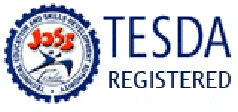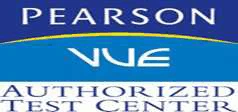It is a known fact that computer viruses have grown sophisticated over time infecting part of your computer’s mainframe or hard drive, slowly crippling its programs and files up to the point of rendering it completely useless. In effect, equally sophisticated anti-virus software had to be created to combat these threats.
These soft wares initially acted as scanners that search your hard disk for viruses. They perform counterattacks by detecting these viruses and flushing them out of your computer’s system preventing any more damage. This article will teach you different types of anti-virus programs or scanners being used today.
• Conventional Disk Scanners: This is the basic amongst anti-virus scanners. It is entered manually with the user’s permission for computer maintenance and virus detection .It scans files, directories on your disk for virus recognition following its own set of description or definition of these so-called “threats”. Also, it can be tasked to run automatically with the use of a scheduler program.
• Memory-Resident Scanners: These scanners are distinct in allowing you to access your computer while in the background the program runs following a variety of descriptors or definitions for virus detection. It can be programmed to automatically search for viruses in programs after executing a command for the system to shut down. Therefore, it provides tightened security and gives more room to catch theses threats and prevent further damage.
• Behavior-Based Detection: The name itself suggests that this type of software runs in your computer’s memory and looks for “virus-like behavior or activities.” It would mainly look for actions like, a command to format your hard disk and attempts to write on your system’s current files or programs, or boot sections of your hard or floppy disks. However, the setback lies with its detection of behaviors that are similar to viruses which turn out to be safe or innocent programs.
• Startup Scanners: Scanners of this nature were designed to catch viruses whenever your PCs are turned on or in computer language, booted. Its objective is to contain these threats on the onset, prior to the computer booting up eliminating its chance of spreading.
• Inoculation: This software uses a different technique, by detecting changes made by these viruses to boot sections or programs. It stores information about every program or file, content or size, re-examines them for any changes, if there has been, user will be informed, if it was not done by user then the presumption is that the virus may have. This scanner is advantageous as it can detect fresh viruses without having to update its definitions for such threats. Although, one major drawback is the detection of these potential threats which do not turn out to be viruses considering there are various ways in which a file can change legitimately.
Common anti-virus programs include: AntiVir Personal 8.1.00.295; Avast! Home Edition4.8.1201; AVG Free Edition 8.0.100; BitDefender 10 Free Edition; ClamWin 0.93.1; Kaspersky Anti-Virus 8.0.0.357; McAfee VirusScan 10; NOD32 AntiVirus 3.0.650 and Norton AntiVirus 15.5.0.23.
Now, that you have an idea of how specifically these anti-virus programs work to counter these viruses, let it guide you in intelligently picking out the software that will work best for you.





